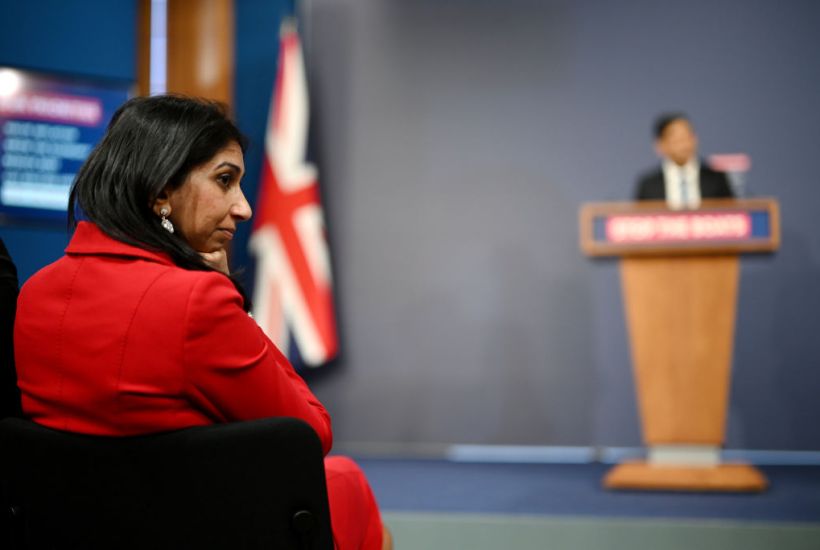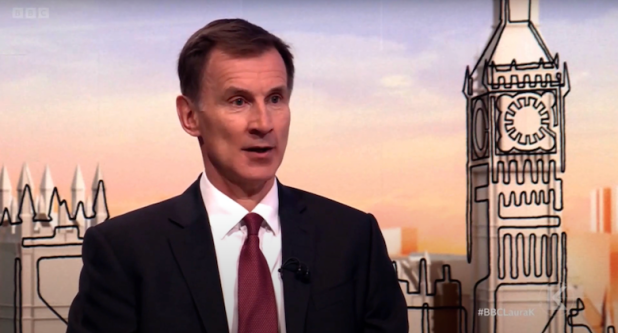I’m writing this shortly after hosting Professor Tim Bale and David Gauke at the Social Market Foundation for a talk about Tim’s excellent book about the radicalisation of the Conservative party in recent years.
That discussion raised a very good question: is leaving the European Convention on Human Rights the next Brexit?
The immediate origins of this question lie in the small boats issue. My view is that the Sunak government will fail to satisfy those voters who are unhappy about Channel crossings. Stark-sounding political threats of deportation and the like won’t deter people desperate enough to travel across a continent in a metal box, then board a raft to cross 20-odd miles of choppy sea. Absent a deal that gives the French real incentives to stop migrants reaching the Channel, the boats will continue to arrive. And voter perceptions of a government unable to control England’s maritime border will persist, fuelled both by Nigel Farage and the political narratives the Sunak administration has validated. If you think Channel crossings are a big issue, the Sunak administration has told you you’re right.
Given that ‘stopping the boats’ is one of the PM’s central promises for this year, failing to do so will be a significant problem for him and the Conservatives. Especially for a party that’s still haunted by the fear that Farage will return to run the Reform party and take away a significant chunk of the core Tory vote at the next election.
So if the boats keep coming and those voters who worry about this continue to worry, what can the Conservatives do politically in response? The obvious thing to do is blame someone or something for that failure. And then make another, even more dramatic promise of action to overcome that obstacle.
That was the pattern that the Tories followed over EU membership in the 25 years before the Brexit referendum: the fail-blame-promise cycle. A ratchet effect of escalating rhetoric meant that what was once a fringe position became the predominant view of Conservatism remarkably quickly. That ratchet started in earnest with David Cameron in 2005 promising to pull the Tories out of the European People’s party, then promising a referendum on the Lisbon treaty and finally upping the ante to concede the membership referendum.
Could a similar process mean that ‘leave the ECHR’ is a promise in the Tory general election? There is a clear logic to this. At that election, the party will need a clear line on small boats. Blaming judges upholding a European rulebook might well be a good story to tell to Farage-inclined voters, while also creating an attack line on Labour: Keir Starmer’s Labour would not back ECHR withdrawal, allowing Tory attack operatives to paint him as a London lawyer more concerned with migrants’ rights than public concerns on migration.
Of course, many Tories would also have deep concerns about leaving the Convention. They are – quite rightly – committed to the rule of law and mindful of the ECHR’s origins as an act of British leadership. At our event, David Gauke argued very convincingly that appointing Alex Chalk, a serious lawyer, as Justice Secretary, is likely to be inconsistent with promising to leave the convention. So maybe that ‘leave the ECHR’ pledge won’t be in the Tory manifesto.
But what if that election ends in the Tories out of office and looking for a new leader? Tim Bale suggests that leaving the ECHR could very easily become the minimum requirement for becoming the Tories’ next leader. It’s very easy to see contenders such as Suella Braverman and Kemi Badenoch taking the pledge to withdraw in any such contest. (Or even before that contest formally begins. No one would be particularly surprised to see Braverman float the idea while in office.)
There are many good reasons to think that ECHR withdrawal will remain beyond the pale of acceptable policy for the Conservatives in the next year or two. But not so very long ago ‘leave the EU’ was a fringe position held by a handful of peripheral figures. If recent Tory history teaches us anything, it’s that the distance between the marginal and the mainstream is often shorter than it appears.
Got something to add? Join the discussion and comment below.
Get 10 issues for just $10
Subscribe to The Spectator Australia today for the next 10 magazine issues, plus full online access, for just $10.




















Comments
Don't miss out
Join the conversation with other Spectator Australia readers. Subscribe to leave a comment.
SUBSCRIBEAlready a subscriber? Log in